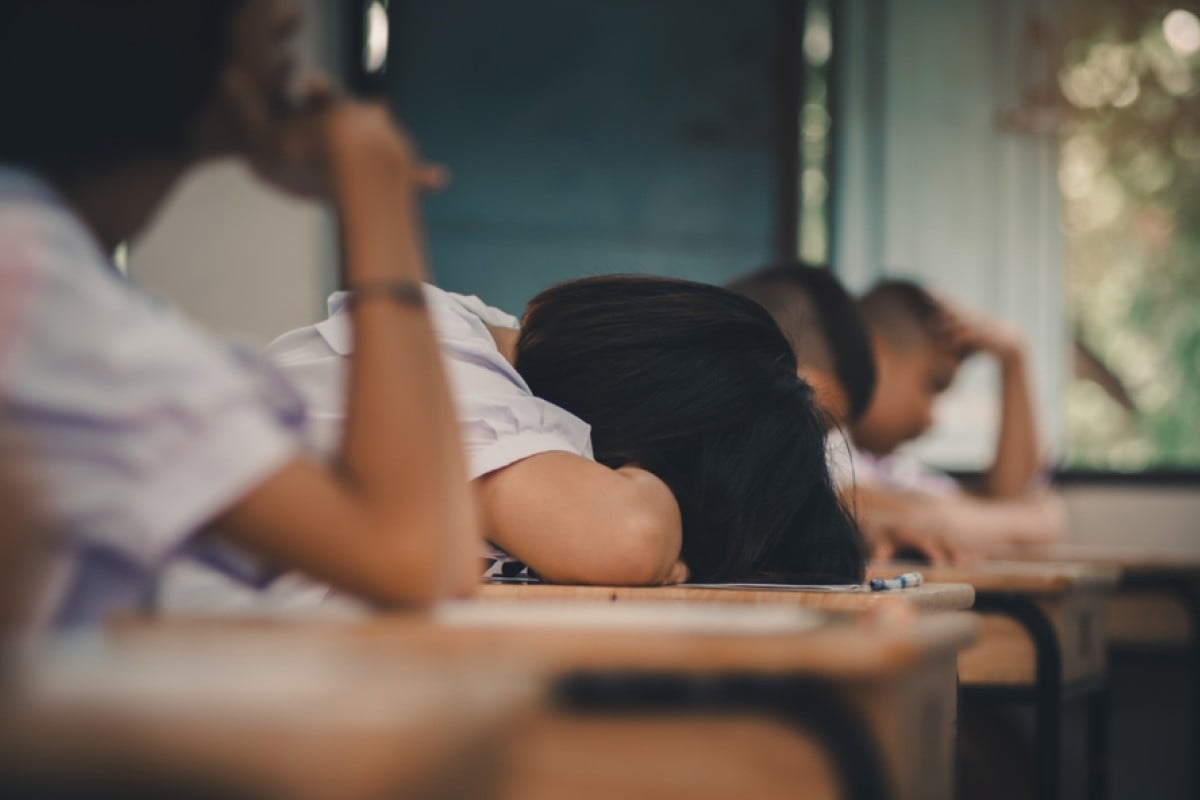
Face Off: Is detention an effective punishment for students?
- Each week, two of our readers debate a hot topic in a parliamentary-style debate that doesn’t necessarily reflect their personal viewpoint.
- This week, they discuss whether detention actually works as a punishment

Snehaa Senthamilselvan Easwari, 18, Li Po Chun United World College
Detention can be a very effective form of punishment. It can stop students from misbehaving and help them reflect on their actions. There’s also the time factor. In secondary school, the ability to manage your time is very important. So, when time is taken away from them, they’ll realise the value of obeying teachers’ instructions and trying their best in the classroom.
For example, students who are late for their lessons often should be made to stay at school after classes have ended. Detention can also be useful when dealing with students who are rude and disrespectful, skip class, or cheat on their assignments.
But if you detain a secondary school student for not doing their homework, or coming to class unprepared (e.g. without a notebook or pen), then this kind of punishment is unlikely to work, because they are mature enough to realise that they have made a mistake and should not do it again.
Face Off: Should the HK government build flats on the Fanling golf course?
Detention can affect students in different ways – some take it seriously while other just don’t care. So teachers could use this time to help students with their problems.
It is crucial that students understand why they are being punished. The emphasis should not be on punishment but changing the students’ attitude towards their studies.
There are several ways to handle badly behaved students. Most students who face detention are asked to write essays. Other times, they may be asked to engage in activities such as tidying up, or picking up rubbish in their classrooms.
I believe detention can be beneficial for students because it will help change their behaviour and realise the importance of a good education.
Which comic character would you want as your principal?
Karl Lam, 17, German Swiss International School
I am sure I speak on behalf of most students when I say that detention is a terrible experience that they would never want to face. Some may feel the punishment is shameful and a stain on their reputation. Detention can range from missing lunch breaks to more brutal forms, such as writing pointless sentences thousands of times or serving as a teacher’s photocopying assistant after school.
Detaining students for passing notes in class or not doing their homework might make them feel guilty for maybe a week or so, but it won’t change how they do things. In fact, students who are angry about being punished could cause more problems for teachers and schools as a whole. It’s no surprise that the same people keep getting punished over the course of their student life.
Sitting alone in a classroom after school is no fun. Whether it’s spending time with a teacher to get an important assignment finished, or having a meaningful counselling session with a social worker, more time should be spent on trying to find out why students misbehave and help them correct their mistakes, not punishing them.
Talking Points: should teachers and principals wear a uniform?
What if students who have to go to detention have after-school activities, for example, sports or debating practice? The coaches would be very angry with students who miss those training sessions. Detention is just not worth it.
Hong Kong schools rarely promote an open-door policy – and it’s this lack of communication between students and school authorities that causes so many problems.
The main purpose of detention is to improve a student’s behaviour. We must stop trying to control students and learn to respect them. We must create a better environment for them so they choose to behave themselves.
Detention is illogical and unfair, and it doesn’t work.